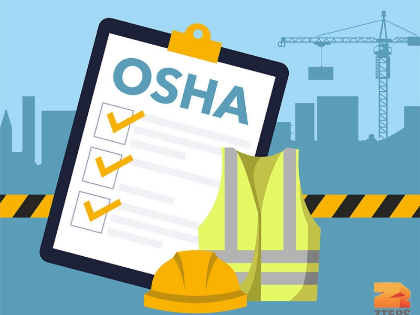Selecting the Appropriate Disability Insurance Plan
Selecting the appropriate coverage is essential if you want disability insurance to help you save for retirement and pay your living expenses. The benefit amount and duration, the definition of disability (own-occupation is preferred), the elimination period, and the riders are the important factors to take into account. The cost of premiums, the presence of a waiting period, and the possibility of future increases to keep up with inflation are other crucial factors to take into account.
Reportage

Premiums
 The cost of disability insurance is influenced by several factors. They cover the terms "disability" and "elimination period," as well as optional riders. As an illustration, while some policies define disability as "own occupation" (i.e., the inability to work in one's field), others define it as "any occupation." The costlier policy kind is the latter.
A cost-of-living adjustment and a future increase option are two other policy components that raise premiums. While the former permits you to return to part-time employment and yet receive partial disability payments, the latter increases your benefit amount in accordance with inflation. Whether you purchase a non-cancellable or guaranteed renewable policy is another consideration.
The cost of disability insurance is influenced by several factors. They cover the terms "disability" and "elimination period," as well as optional riders. As an illustration, while some policies define disability as "own occupation" (i.e., the inability to work in one's field), others define it as "any occupation." The costlier policy kind is the latter.
A cost-of-living adjustment and a future increase option are two other policy components that raise premiums. While the former permits you to return to part-time employment and yet receive partial disability payments, the latter increases your benefit amount in accordance with inflation. Whether you purchase a non-cancellable or guaranteed renewable policy is another consideration.
Terms of policy
 What constitutes a disability is defined differently by insurers. Select a policy that offers an own-occupation definition so that, in the event that you are unable to work in your current job, you will still be eligible for payments. The elimination period—which can last anywhere from 30 to 365 days—should also be taken into account. While a shorter duration will result in cheaper premiums, it may also put you in more precarious financial situations. Additionally, take into account the future increase option, which addresses inflation by allowing coverage to increase over time.
Lastly, to assure that your insurance stays set and steady as long as you pay your premiums on time, search for a non-cancelable policy with guaranteed renewals. You will feel at ease knowing this.
What constitutes a disability is defined differently by insurers. Select a policy that offers an own-occupation definition so that, in the event that you are unable to work in your current job, you will still be eligible for payments. The elimination period—which can last anywhere from 30 to 365 days—should also be taken into account. While a shorter duration will result in cheaper premiums, it may also put you in more precarious financial situations. Additionally, take into account the future increase option, which addresses inflation by allowing coverage to increase over time.
Lastly, to assure that your insurance stays set and steady as long as you pay your premiums on time, search for a non-cancelable policy with guaranteed renewals. You will feel at ease knowing this.
What constitutes a disability?
 When determining whether a policy would satisfy your needs for coverage, the definition of disability is a crucial consideration. Over time, most plans switch from an "Own Occupation" to an "Any Occupation" requirement; it's crucial to know how this may impact your coverage.
The kind of coverage you select is another factor to take into account. Group policies, which are frequently subject to federal ERISA legislation, have a less permissive definition of disability under "Own Occupation" and provide limited legal protections. Individual policies offer more stringent definitions of disability and offer additional legal safeguards, but they are typically more expensive.
Consult a financial expert to determine the best disability insurance plan for your requirements. Obtain a free quote for disability insurance right now.
When determining whether a policy would satisfy your needs for coverage, the definition of disability is a crucial consideration. Over time, most plans switch from an "Own Occupation" to an "Any Occupation" requirement; it's crucial to know how this may impact your coverage.
The kind of coverage you select is another factor to take into account. Group policies, which are frequently subject to federal ERISA legislation, have a less permissive definition of disability under "Own Occupation" and provide limited legal protections. Individual policies offer more stringent definitions of disability and offer additional legal safeguards, but they are typically more expensive.
Consult a financial expert to determine the best disability insurance plan for your requirements. Obtain a free quote for disability insurance right now.
Time of elimination
 One of the most crucial things to take into account when choosing a disability insurance policy is the elimination period. It specifies the amount of time you have to wait before benefits start. A longer elimination period lowers the premium, but it also means you have to save enough money to pay for living expenses until benefits begin.
When making a choice, it is critical to consider the advantages and disadvantages of each alternative. You should also consider any assets you may have and your other sources of income. You should also think about how much you can live without receiving insurance or money.
One of the most crucial things to take into account when choosing a disability insurance policy is the elimination period. It specifies the amount of time you have to wait before benefits start. A longer elimination period lowers the premium, but it also means you have to save enough money to pay for living expenses until benefits begin.
When making a choice, it is critical to consider the advantages and disadvantages of each alternative. You should also consider any assets you may have and your other sources of income. You should also think about how much you can live without receiving insurance or money.
Motorcyclists
 There are various riders for disability insurance that can be added to an existing policy. Certain ones are included by default, while others demand an extra cost. The majority of these riders are designed to offer more specific coverage, such as the mental illness elimination period.
The future increase option, which enables you to raise your benefit annually without providing proof of income, is one of the other riders. For people whose income is expected to rise over time, this is a crucial rider since it can guard against benefit cutbacks based on inflation.
You can choose the best disability insurance coverage for your needs with the assistance of a financial expert. But it's crucial to read the fine print and conduct your own research.
There are various riders for disability insurance that can be added to an existing policy. Certain ones are included by default, while others demand an extra cost. The majority of these riders are designed to offer more specific coverage, such as the mental illness elimination period.
The future increase option, which enables you to raise your benefit annually without providing proof of income, is one of the other riders. For people whose income is expected to rise over time, this is a crucial rider since it can guard against benefit cutbacks based on inflation.
You can choose the best disability insurance coverage for your needs with the assistance of a financial expert. But it's crucial to read the fine print and conduct your own research.








